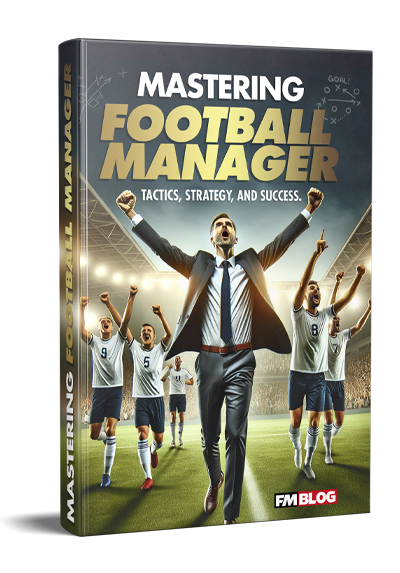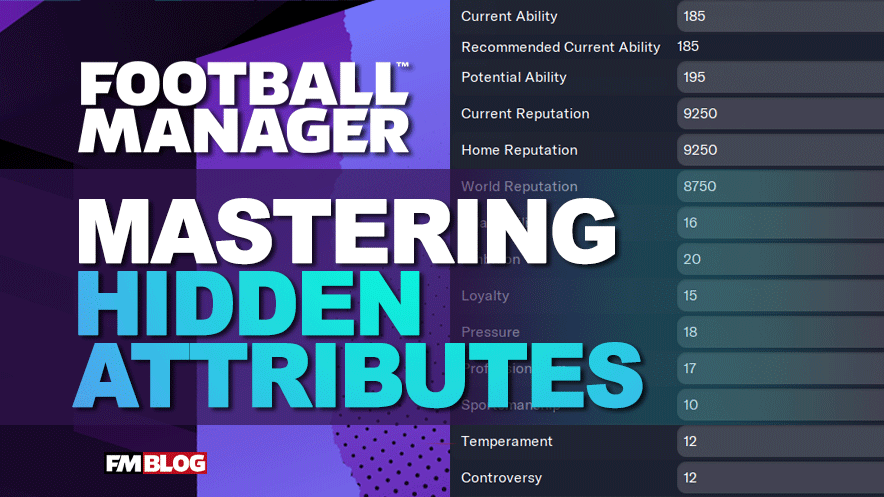Harness the Power of Consistency, Ambition, Loyalty, and Professionalism for Successful Team Management
As a result, there’s quite a whole treasure trove of guides and tips about the importances of these hidden attributes, particularly of how important it is to have players who excel at a number of them. Regardless, there are other ways to take advantage of these qualities, particularly when it comes to scouting and making signings.
Inconsistent Gems
The hidden attribute of consistency translates as to how often a player showcases all of his ability. Basically, players will play within a range of the sum of their attributes, and Consistency controls how often they’ll hit 100%. This means you often want players with high Consistency, as otherwise, they’ll give you sub-par performances every other week.
However, there are some caveats. Players with low Consistency will struggle to get to their best level, but they don’t play in a vacuum. How well a footballer performs has also a lot to do with how well their rivals do so; the worst goalkeeper in the world won’t get scored if the opposition striker isn’t on his day.
As such, when looking at a player with low consistency, you need to ask yourself, “Are they still good enough for my team?”. A player whose inconsistency is a hindrance at any given league may not suffer as much in a lower tier or at a lower-level league. A top-tier flop could still be a world-beater for your second-division team, as his drop in level game to game won’t be as noticeable when playing lower-quality players.
So far, so good, but the key element is the cost. Just as a human manager would, the AI rates lower players who aren’t as consistent (or dislike big games), which impacts on the fee they’re willing to ask to sell them. This makes players with big talent but who are inconsistent on the pitch a great opportunity for managers in the lower leagues, as they’re bound to get quality at a reduced rate.
Unambitious Heroes
Ambition is one of those attributes that come with upsides and downsides, whether they’re high or low. A player with a big Ambition will progress further in training, react well to the setting of lofty goals, and, in general, push themselves to betterment. It is a measure of how much they want to progress as footballers.
However, they are also likely to ask more of others, not just themselves. Players with high Ambition will want to be surrounded with talented, like-minded players, they will require more money to sign their contracts, and they can be easily tempted away if a higher-reputation team comes knocking on their door.
That means that while you usually want higher Ambition players, these can be time bombs if you’re managing a lower tiers or bottom half team, as they’ll be constantly looking for greener pastures and make themselves costly to maintain.
On the other hand, a player with lower Ambition might not be a great purchase if you’re looking to build up your squad’s mentality; they can have some advantages. They won’t be as easily tempted away from a comfortable situation, they won’t require big signings to stay put, and they won’t ask you for as much money during contract negotiations. All this can prove useful if you’re a struggling club trying to keep talent on board, and it won’t impact their performance provided you don’t expect them to improve massively in training.
Disloyal Profits
Working almost as a counterbalance to Ambition, the hidden attribute of Loyalty impacts on how faithful a player will be to a club or a manager. This means high Loyalty players will stick with their current team (within reason) through thick and thin and will choose to stay put if they’re enjoying working with them.
However, let's look at lower Loyalty players. These players won’t let sentimentality stand in the way of their careers, and you can exploit this. For starters, they’re much easier to destabilise if you’re looking to sign them; gestures such as dedicating a scout to watch them, coming to a game or speaking plainly of your interest in the press will have a much greater effect on these players. Much in the same way, a higher reputation difference will have a greater impact on their willingness to move to your team. This means if you’re managing a big side, you can go after low Loyalty players without much concern, as they’ll be drawn to the magnetism of your World Reputation.
More so, you can even make use of this if you aren’t managing a really big side, but don’t mind making a tidy profit in the middle. Simply put, as they’re easier to sway, that means lower Loyalty players will cost you less to sign, and you can still cash in when they turn their eyes to bigger goals. While this practice isn’t great for dynasty building, it can keep the coffers filled for a struggling team.
Unprofessional Quick Fixes
Professionalism is one of the golden standards of hidden attributes. Players who have high Professionalism will be determined to keep the levels high, work hard during training to better themselves, and are brilliant for guiding youngsters. They raise the level of the whole squad… and that makes them expensive and sought after.
But there’s also a gain to be made with those individuals who don’t take their trade as seriously. Just as with Consistency, the IA will understand and value the importance of Professionalism, and will be more open to shifting unprofessional footballers from their squad. This makes them cheaper, and we like cheaper.
Simply put, provided they are already at a level where they can make the first team or provide whatever services you want, and you don’t expect them to better themselves or guide the up-and-coming talent, you can make good use of these players.
This is especially good for lower division teams, where facilities and coaches aren’t as good, so you have to put less of an emphasis on how a player will develop, and instead focus on what they offer from the get-go. Lower Professionalism players will have their attributes drop quicker than their focused counterparts, as a consequence of them slacking in training, but not before you get a few good seasons out of them before you too can move to those golden pros.
Conclusion
Every team and manager wants to have the Model Citizen players, those who work hard, play well and stay loyal, but that comes at a cost, both in money, work and luck, and you can’t always afford that on Football Manager. Whether you’re managing a struggling side who have to make ends meet or a big side who simply needs those who can win now and ask questions later, you can gain a significant competitive advantage if you understand how Hidden Attributes work. These traits can transform your team if you recognize when and where to push, and when to make the best with flawed but serviceable players, so you have an advantage in the market.





















